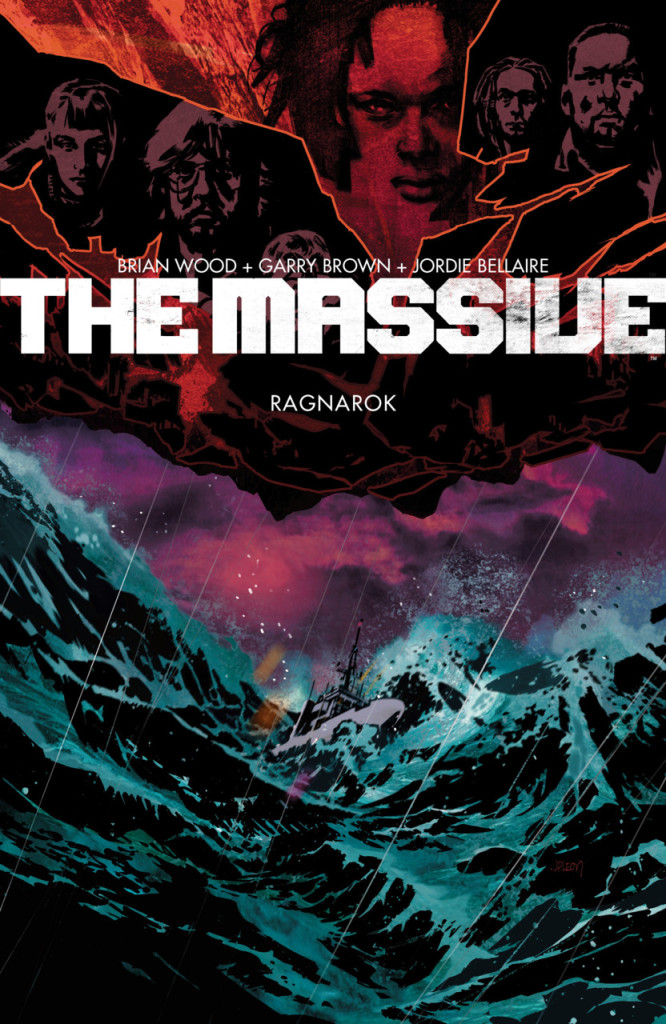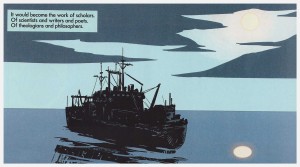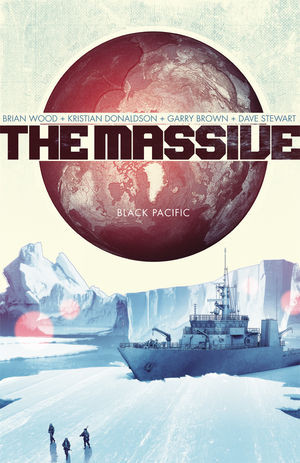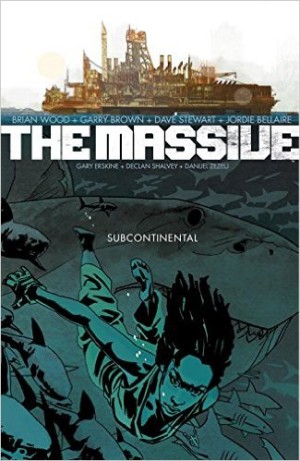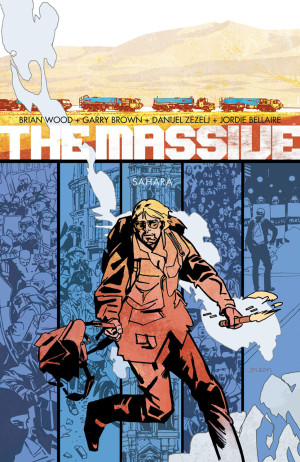Review by Frank Plowright
Throughout The Massive there have been inconsistencies, incongruities and cast members behaving in inexplicable fashion. These have been glossed over, or left unexplained, although the previous volume, Sahara, began delving into some. With Ragnarok being the conclusion, explanations are the order of the day, but whether readers who’ve followed the series to this point will be satisfied with them is another matter.
It begins with the revelation that the Crash, the eleven month long planetary disruption that ended two years previously was just the precursor to the main event. This time gravity is affected. Planes and satellites fall from the sky killing millions, but on the positive side Calum, ecological activist and captain of the Kapital, is reunited with Mary and there’s a surprise waiting for him. Having pushed his plot to that point, Brian Wood then drags it several further chapters via strained conversation, elliptical responses and the convenience of the ship for which the Kapital has been searching for two years just turning up in the night alongside.
What happens thereafter strains credulity even for a science fiction comic. Those content with conclusions where strange phenomena occur and require accepting at face value should have no qualms here. Those preferring a logical explanation that ties a bow on the package may feel cheated. The ending doesn’t invalidate the stories told during the series, although it offers a new slant on some, and was apparently part of the package when pitched. If so, the pacing and focus has often been extremely clumsy.
Garry Brown is not the artist universally suited to events of great emotional impact. His sketchy style delivers haggard and depressed, but few degrees beyond. His people are blank-faced or doused in shade, and here, when an entire cast should be twisted through the wringer, he can’t adapt. Conversely, ask him to draw a seascape or a storm and he’ll supply fantastic illustrations, that same sketchy style serving extremely well.
Wearing one’s emotions on one’s sleeve is unjustly considered a fault in today’s Western society, and Wood’s attempt to highlight his ecological concerns is making an effort others wouldn’t. Sadly, though, they’ve been grafted to a story that ultimately fails.
